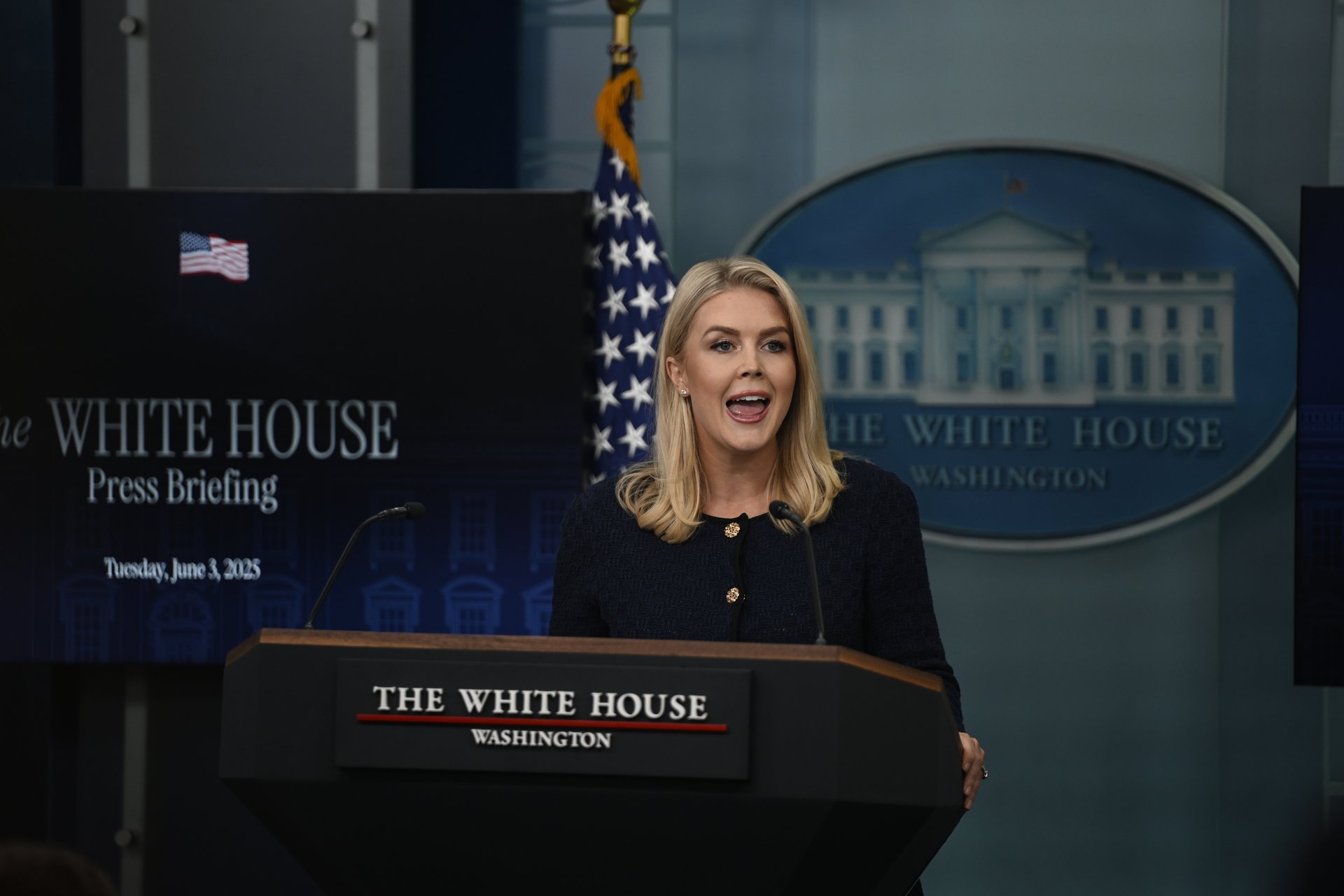The White House suggests a major trade deadline could be extended
The Trump administration has raced to negotiate deals with dozens of countries ahead of a self-imposed July deadline. But it has made limited progress

White House press secretary Karoline Leavitt speaks at the White House Press Briefing room in Washington, D.C., on June 3, 2025. (Celal Gunes/Anadolu via Getty Images)
The White House said that an upcoming deadline for trading partners to avert another wave of tariffs could be extended beyond July 9.
Suggested Reading
"The deadline is not critical," White House Press Secretary Leavitt said at a Thursday press briefing. "The president can simply provide these countries with a deal if they refuse to make us one by the deadline."
Related Content
Asked to clarify further, Leavitt said: "Perhaps it could be extended, but that’s a decision for the president.”
The Trump administration has raced to negotiate deals with dozens of trading partners ahead of a self-imposed July 9 deadline. But it has made limited progress on that front.
So far, it has struck an agreement with the United Kingdom on reciprocal tariffs and negotiated a temporary truce from trade hostilities with China. The Trump administration's reciprocal tariff regime currently stands at 10% for most countries. It abruptly reversed course from even more punishing import taxes in the spring after a torrent of volatility in financial markets. A three-month pause went into effect on April 9.
The White House has linked parts of the sweeping Republican domestic policy bill in Congress to ongoing international trade negotiations in an apparent effort to prod them along. White House National Economic Council Director Kevin Hassett said on Wednesday a controversial "revenge tax" provision could be removed if enough nations comply with the U.S.
The Senate measure, otherwise known as Section 899, would impose a punitive tax of up to 15% on companies and investors from nations the White House deems are taxing U.S. businesses unfairly. That has attracted considerable scrutiny from critics who fear it will quell foreign investment into the U.S.
